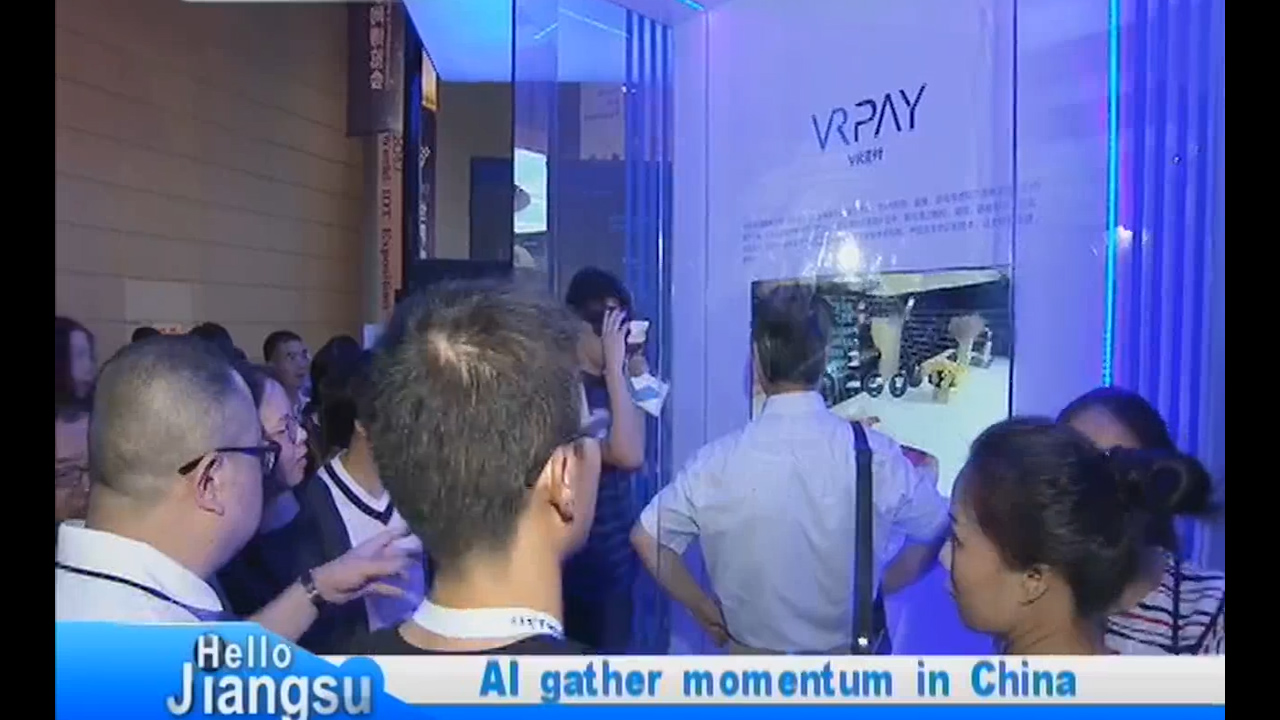Artificial intelligence is one of the hot topics at the 2017 World Internet of Things Expo that is going on in Wuxi city of Jiangsu province. What is artificial intelligence? What are the bottlenecks that need to be broken atpresent? What other areas will be infiltrated in the future to change the way we live? These are the questions that have aroused public concern. Let’s take a close look.
A wide variety of AI applications are displayed at the Wuxi International Expo Center, such as the applications with the ability to automatically switch air conditioners and lights according to the users’ habits, the ability for refrigerators to identify ingredients and do online shopping for you. There are also many smart robots that can do a lot of things for you.
The popularity of the AI applications has indicated people's expectations for artificial intelligence. More and more people are beginning to explore whether the future of AI will help with the humans or replace humans. The participants have their say.
Jack Ma, chairman of Alibaba Holdings Group
The most hotly discussed issue over the past two years isthe board game Go contest between human Go players and AlphaGo program, which is powered by Google's DeepMind AI. The human players felt frustrated after they were defeated by the program. The machines have done what humans could not reach, which is not a big deal. My handwriting is hardly recognizable but I feel it’snice. The writing on the computer is very nice but it's not worth a dime. I think what is remarkable is that machines are now able to do what humans cannot.
Toshio Fukuda, distinguished professor funded by the One-Thousand-Talent program
Robots are used more often in production work and we have no idea what robots will look like in 50 years but it is certain that it cannot replace humans to makejudgments.
The public interest in artificial intelligenceis a clear manifestation of possible opportunities for industrial development in the future but manyparticipants pointed out that, from the current point of view, most of the artificial intelligence is still at the infant stage and a far cry from the big era of AI explosion for the coming of a new round of industrial revolution.
Wei Qing, head of Microsoft's Windows unit in China
Facial recognition, speech recognition and video recognition, these are what we call universal capabilities. We think that if we really want to make a contribution to this society, we must add industry knowledge for the emergence of industrial capability. This is what we think the path for the coming of the fourth industrial revolution.
Sue Ellen Haupt, senior scientist, National Center for Atmospheric Research, USA
In the future, artificial intelligence should also be used in the production of renewable energy, such as the use of wind energy, because it can better and more accurately predict a large number of data on the wind direction andgeographical forms, which can greatly improve our production efficiency.
In recent years, China’s central government has attached great importance to the development of AI. China's plan for artificial intelligence development, issued by the State Council in July this year, is a major step for carrying out the innovation-driven development strategy and making the country a global leader in science and technology. In July, the central government outlined a national plan aiming to grow the industry to 150 billion yuan by 2020, 400 billion yuan by 2025, and 1 trillion yuan by 2030.
Many participants have put forth their suggestions on the finalization of the development goals.
Roberto Saracco, head of IEEE’s Future Directions Committee
The rapid development of artificial intelligence in the past few years rests with the big data which is able to calculate your words and actions. The analysis model, however, has lagged behind the current data volume and type in terms of big data calculation, so we need to study new analytical methods to really make the data more intelligent.
Luoning Gui, Senior Vice President of Alcatel Lucent Shanghai Bell,China
The final stage is like the highest ultimate goal. Of course it is tantamount to saying that our machine can really think like our human brain as the machine needs to be supported by a lot of scientific data. We believe that in the future, perhaps in 2030 or 2040, the goal is to be achieved.






